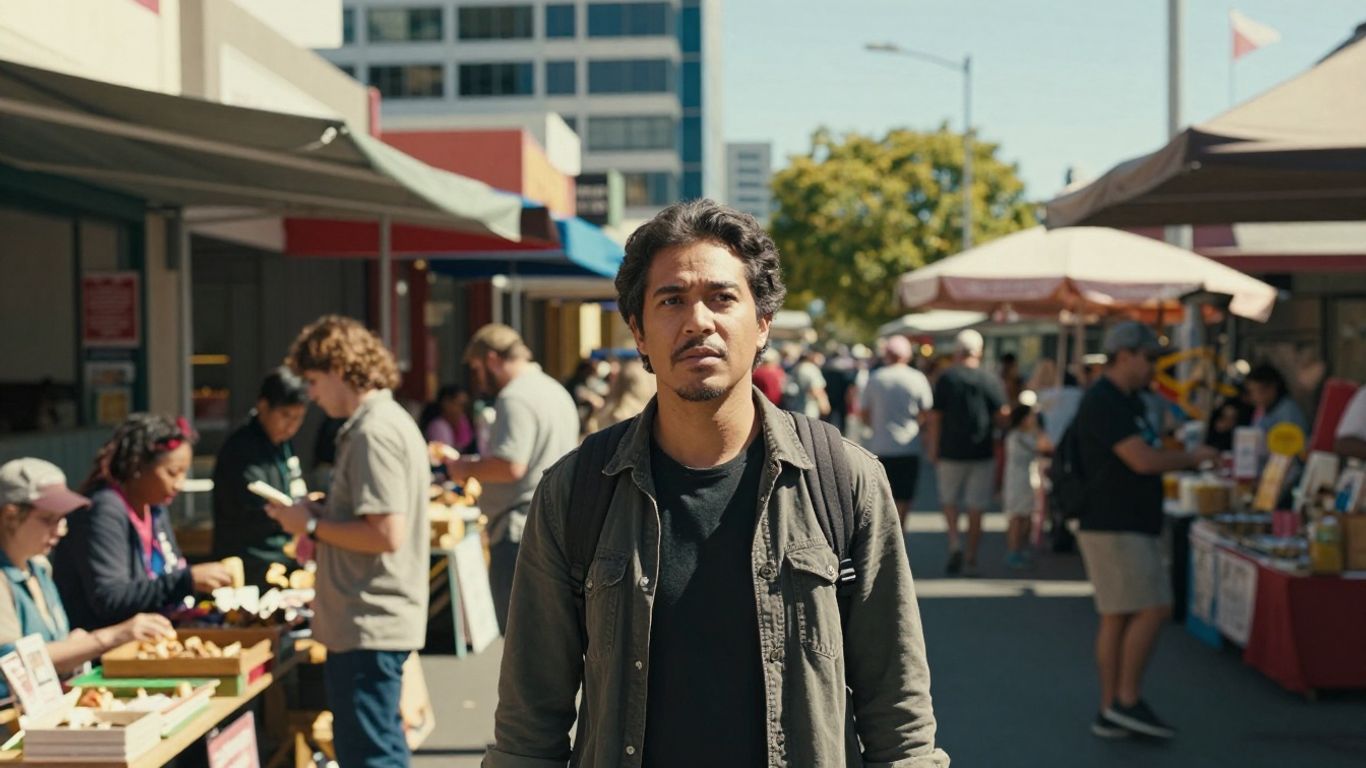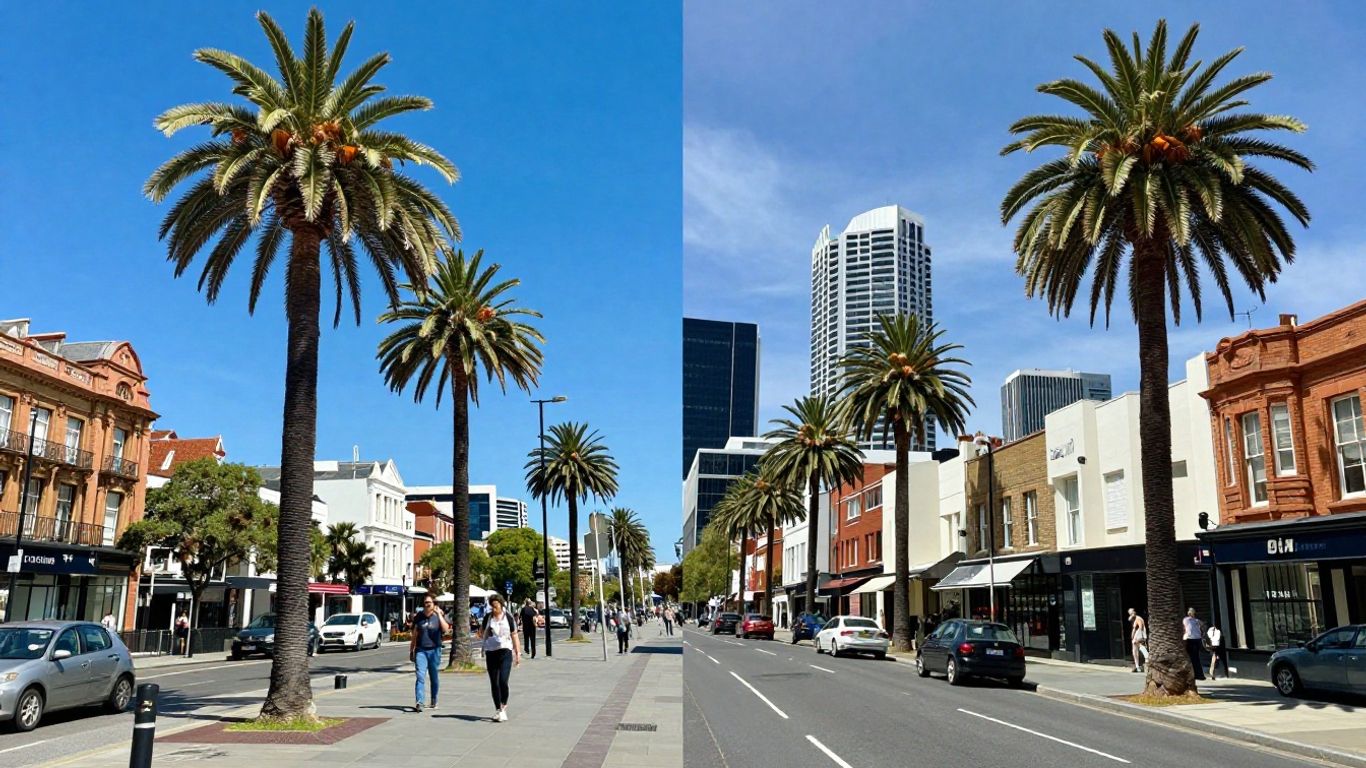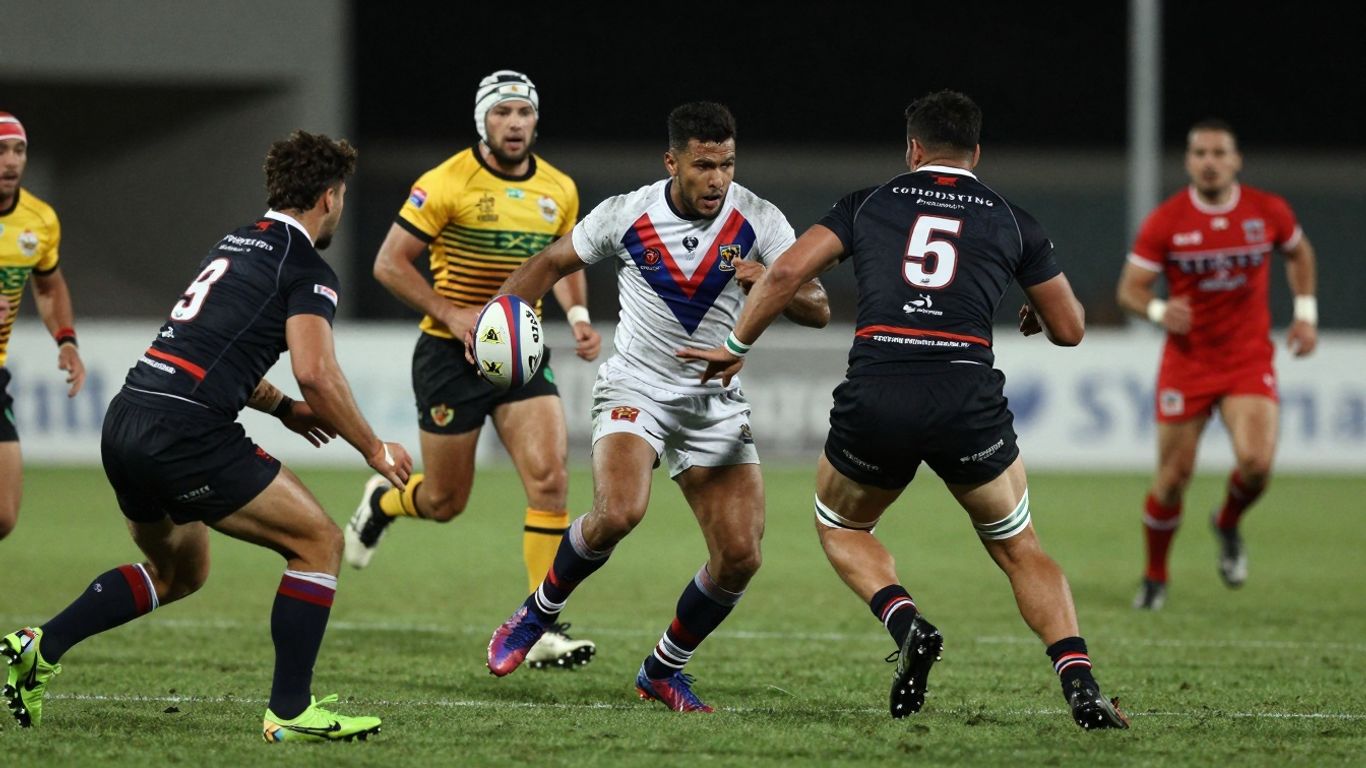Looking to make a real difference in Indigenous health? Australia has some great aboriginal health courses available that can help you get there. Whether you’re just starting out or want to specialise, there are options to build your skills and contribute to better health outcomes for Aboriginal and Torres Strait Islander peoples. Let’s check out some of the top courses out there.
Key Takeaways
- The Certificate IV in Aboriginal and/or Torres Strait Islander Primary Health Care Practice is a foundational qualification for those wanting to work as health practitioners.
- Graduate Diplomas and Master’s programs offer specialised knowledge in areas like Indigenous Health Promotion and Public Health with an Indigenous focus.
- Some courses are specifically designed for Aboriginal and Torres Strait Islander peoples, building on existing experience and cultural knowledge.
- Career paths include direct practice as an Aboriginal Health Practitioner, as well as roles in research, policy, and community engagement.
- Practical experience and community collaboration are often key components of these aboriginal health courses.
1. Certificate IV in Aboriginal and/or Torres Strait Islander Primary Health Care Practice

So, you’re looking to get into Aboriginal and Torres Strait Islander primary health care? This Certificate IV is a really solid starting point. It’s designed for people who identify as Aboriginal or Torres Strait Islander and want to work in health roles, often as part of a team in community health settings. Think of it as learning the practical skills needed to support people’s health and wellbeing, making sure it’s done in a way that respects culture.
What you’ll actually learn covers a fair bit of ground. You’ll get hands-on with things like doing basic health checks, helping people with their social and emotional wellbeing, and understanding how to work legally and ethically. It also covers promoting healthy lifestyles and managing care plans. The course is structured around 19 units of competency, with 14 core units and 5 specialist units, so there’s a good mix of essential knowledge and skills tailored to this specific area of health.
Here’s a look at some of the core areas you’ll cover:
- Providing support for social and cultural determinants of health.
- Working effectively within Aboriginal and Torres Strait Islander primary health care settings.
- Participating in workplace health and safety practices.
- Completing physical health assessments.
- Promoting lifestyle changes for better health.
To get into this course, you’ll need to show you’re of Aboriginal or Torres Strait Islander descent and accepted by your community, usually with a Confirmation of Identity letter. Plus, you’ll need to have completed at least 500 clinical hours, which means you’ll likely be working or volunteering in a relevant health service with a supervisor to sign off on your practical work. You also need to be 18 by the time you finish if you want to register with AHPRA as an Aboriginal Health Practitioner.
This qualification is a pathway to becoming a registered Aboriginal and Torres Strait Islander Health Practitioner, but registration itself has its own requirements beyond just completing the course. It’s about building a career where you can make a real difference in community health.
2. Graduate Diploma in Indigenous Health Promotion
This graduate diploma is a solid step for those looking to really make a difference in Indigenous health. It’s designed to build on the experience many Aboriginal and Torres Strait Islander health workers already have, giving them formal qualifications to advance their careers. The program focuses on health promotion, which means learning how to create and run initiatives that improve wellbeing in communities. You’ll get to grips with identifying health issues that might be missed by broader services and develop strategies that actually respect cultural differences.
It’s a one-year, intensive course, often delivered in blocks, which makes it easier to fit around work and life. You’ll learn from academics who are experts in the field, including Indigenous leaders, and you’ll be studying alongside people from all over Australia – urban, rural, and remote. This mix of people and perspectives is pretty important for understanding the wide range of challenges.
The goal is to equip you with the skills to work effectively in different settings, whether that’s in a city clinic or a remote community health service. It’s about applying theory and evidence to real-world situations.
Key areas you’ll likely cover include:
- Understanding the social and cultural factors that impact health.
- Developing culturally safe health promotion plans.
- Working collaboratively with communities and organisations.
- Learning about public health research and policy.
- Evaluating health programs.
Completing this diploma can open doors to more senior roles, allowing you to contribute more significantly to health equity for Aboriginal and Torres Strait Islander peoples.
3. Master of Public Health (Indigenous Health)
If you’re looking to really get stuck into the big picture of Indigenous health in Australia, a Master of Public Health with a specialisation in Indigenous Health is a solid choice. This degree goes beyond just understanding the immediate health issues; it digs into the social, cultural, and historical factors that have shaped, and continue to shape, the health of Aboriginal and Torres Strait Islander peoples. You’ll be looking at things like access to services, housing, education, and how these connect to overall wellbeing.
This kind of program is designed to prepare you for a range of roles. Think about working in policy development, where you can influence government decisions, or in research, uncovering new ways to tackle health disparities. Community engagement is another big area, working directly with communities to implement health programs that actually work for them. It’s about building capacity and making a real difference.
What you can expect to learn includes:
- The social determinants of health and their specific impact on Indigenous communities.
- Culturally safe research methodologies.
- Strategies for effective community-led health initiatives.
- Public health policy analysis and development from an Indigenous perspective.
- Understanding the historical context of Indigenous health in Australia.
This postgraduate study is ideal for those who want to contribute to closing the health gap. It provides advanced knowledge and skills to address complex health challenges faced by Indigenous populations, focusing on practical application and evidence-based approaches.
Many of these programs are structured to allow for flexible study, sometimes even online or in intensive blocks, which is handy if you’re already working. It’s a serious commitment, but the impact you can have is pretty significant.
4. Specialist Certificate in Empowering Health in Aboriginal Communities
This course is designed for those looking to make a real difference in Indigenous health, focusing on practical ways to improve wellbeing within Aboriginal communities. It’s not just about theory; it’s about understanding the deep-rooted social and cultural factors that impact health outcomes and learning how to address them effectively. You’ll gain insights into community-led approaches and how to work alongside local people to create positive change.
The program aims to equip you with the skills to support culturally safe health practices.
Key areas you’ll explore include:
- Understanding the social determinants of health specific to Aboriginal communities.
- Developing strategies for health promotion and preventative care.
- Building respectful relationships and partnerships with community members and organisations.
- Learning about ethical considerations and culturally appropriate communication.
This type of specialised study is vital for anyone committed to closing the health gap. It provides a focused pathway to contribute meaningfully to Indigenous health initiatives, whether in research, policy, or direct community work.
5. Graduate Certificate in Aboriginal Health in Rural Communities
This course is a good option if you’re looking to focus on the specific health needs of people living in regional and remote parts of Australia. It’s designed to give you practical skills and knowledge relevant to these unique settings. You’ll learn about the social determinants of health that really impact these communities, like access to services and cultural factors. It’s not just about theory; you’ll get a solid grounding in how to work effectively within these environments.
It prepares you for roles that directly support the wellbeing of Aboriginal and Torres Strait Islander peoples in rural areas.
Here’s what you can expect to cover:
- Understanding the unique health challenges faced by rural Indigenous populations.
- Developing culturally appropriate health strategies for remote settings.
- Learning about the importance of community engagement and collaboration.
- Exploring the role of primary healthcare services in rural contexts.
Working in rural Indigenous health means you’ll often be dealing with situations where resources are stretched, and cultural understanding is paramount. This certificate aims to equip you with the tools to make a real difference in these settings, building strong relationships and addressing health issues with sensitivity and respect. It’s about practical application and making a tangible impact where it’s needed most.
This type of qualification can open doors to various positions, including community health worker roles or program support within organisations focused on rural Indigenous health initiatives. It’s a pathway to contributing directly to better health outcomes in areas that often face significant barriers to care.
6. Doctor of Philosophy – Indigenous Knowledge
Pursuing a Doctor of Philosophy (PhD) focused on Indigenous Knowledge is a significant step for anyone serious about contributing to the advancement of Aboriginal and Torres Strait Islander health. This isn’t just about getting another qualification; it’s about deep research and making a real difference.
Think of it as building on everything you’ve learned in other courses, but taking it to a whole new level. You’ll be exploring complex issues, developing new ways of thinking, and potentially creating solutions that haven’t even been imagined yet. It’s a path for those who want to lead research, influence policy, and truly understand the intricate factors affecting Indigenous wellbeing.
This level of study often involves:
- Conducting extensive, original research.
- Engaging deeply with Indigenous communities and knowledge systems.
- Contributing new insights to academic literature and practical health strategies.
- Developing advanced analytical and critical thinking skills.
It’s a long road, no doubt, requiring dedication and a genuine commitment to the field. But the impact you can have is immense.
The journey through a PhD in Indigenous Knowledge is as much about personal growth and cultural immersion as it is about academic achievement. It demands respect for diverse ways of knowing and a commitment to ethical research practices that benefit Indigenous peoples.
If you’re looking to become a leader in Indigenous health research or academia, this is the ultimate qualification. It’s about becoming an expert who can guide future directions and address the ongoing health disparities faced by Indigenous Australians. You’ll be contributing to closing the gap in health outcomes, a goal that remains incredibly important for Aboriginal Australians.
7. Aboriginal Health Practitioner Roles

So, you’re thinking about becoming an Aboriginal Health Practitioner? It’s a really important job, and there are heaps of different ways you can go with it. These roles are all about working with Aboriginal and Torres Strait Islander peoples to improve their health and wellbeing, often in community-based settings.
These practitioners are key members of the healthcare team, providing culturally safe and responsive care. They might be involved in everything from health checks and managing chronic conditions to health promotion and connecting people with other services. It’s a hands-on role where you really get to make a difference.
Here are some of the areas you might find yourself working in:
- Primary Health Care: Providing direct clinical care, health assessments, and managing care plans.
- Community Health: Running programs focused on specific health issues like diabetes, heart health, or mental wellbeing.
- Outreach Services: Connecting with people in their homes or communities to provide support and care.
- Health Promotion and Education: Developing and delivering health messages and programs tailored to community needs.
- Hospital Liaison: Helping Indigenous patients and their families navigate the hospital system.
To get into these roles, you’ll often need specific qualifications, like a Certificate IV in Aboriginal and/or Torres Strait Islander Primary Health Care Practice. You’ll also need to meet certain requirements, including practical experience and, for some roles, registration with AHPRA. It’s a pathway that requires dedication, but the impact you can have is pretty significant.
The journey to becoming an Aboriginal Health Practitioner involves not just learning clinical skills, but also developing a deep respect for cultural practices and community needs. It’s about building trust and working alongside communities to achieve better health outcomes.
8. Indigenous Health Research Careers
Getting into Indigenous health research means you’re looking at careers that aim to understand and improve health outcomes for Aboriginal and Torres Strait Islander peoples. It’s a field that really needs people who are committed to working alongside communities, not just studying them from afar. You’ll often find yourself involved in projects that look at everything from social factors affecting health to the effectiveness of different health programs.
This area is all about generating knowledge that can lead to real change on the ground.
If you’re thinking about this path, you might be looking at roles like:
- Research Assistant or Officer
- Project Coordinator
- Data Analyst
- Program Evaluator
- Research Fellow
Many of these roles require specific qualifications, often at the graduate certificate or diploma level, or even a Master’s or PhD, depending on the seniority and focus of the research. It’s a good idea to look into courses that have a strong focus on Indigenous research methodologies and ethics. For instance, understanding how to conduct research in a way that respects community protocols is super important. You might want to check out programs that offer a Graduate Certificate in Aboriginal Health in Rural Communities if that aligns with your interests.
Working in Indigenous health research often involves collaborating with community-controlled health organisations. This partnership approach is key to ensuring research is relevant, ethical, and beneficial to the communities involved. It’s about building trust and working together towards shared goals.
It’s a field that’s constantly growing, and there’s a real need for skilled researchers who are dedicated to making a difference. You’ll be contributing to a better understanding of complex health issues and helping to shape future health strategies.
9. Indigenous Health Policy Development
Developing effective Indigenous health policy requires a deep understanding of the social, cultural, and historical factors that impact the wellbeing of Aboriginal and Torres Strait Islander peoples. It’s not just about writing rules; it’s about creating frameworks that genuinely address inequities and promote better health outcomes.
This field involves a lot of listening and collaboration. You’re working with communities, health professionals, and government bodies to make sure policies are practical and culturally appropriate. The goal is to create policies that are informed by Indigenous knowledge and lived experiences.
Key areas often covered in policy development include:
- Addressing social determinants of health like housing, education, and employment.
- Ensuring culturally safe healthcare practices.
- Promoting community-led health initiatives.
- Improving access to services, especially in remote areas.
Understanding the principles of rights-based and participatory methods is also pretty important here. It means involving the people affected by the policies in the decision-making process. This approach helps build trust and leads to more sustainable solutions. You can explore more about these methods in public health policy.
Policy work in this area often involves translating complex community needs into actionable strategies. It’s about bridging the gap between grassroots realities and governmental structures, making sure that the voices of Indigenous communities are heard and respected at every stage.
10. Community Engagement in Indigenous Health
Working effectively with Aboriginal and Torres Strait Islander communities means more than just showing up; it’s about building genuine relationships based on respect and understanding. This involves listening deeply to community needs and priorities, rather than assuming what’s best. It’s a two-way street, where knowledge is shared and valued from all sides.
When we talk about community engagement in Indigenous health, we’re looking at how health services and programs can be developed and run with communities, not just for them. This means involving community members in every step, from planning and designing services to delivering and evaluating them. It’s about making sure that health initiatives are culturally safe and relevant to the people they are meant to serve.
Here are some key aspects of good community engagement:
- Building Trust: This takes time and consistent effort. It means showing up, being reliable, and following through on commitments.
- Cultural Safety: Understanding and respecting cultural protocols, kinship systems, and traditional practices is vital. This includes acknowledging the importance of connection to Country and the holistic view of health that many Indigenous Australians hold. Learning about the local community’s specific cultural context is a must.
- Partnership: Working collaboratively with local Aboriginal Community Controlled Health Organisations (ACCHOs) and other community leaders ensures that programs are grounded in community needs and strengths.
- Communication: Using clear, accessible language and being open to different ways of communicating is important. This might involve using visual aids or storytelling, and ensuring information is shared through trusted community channels.
Effective community engagement recognises that Aboriginal and Torres Strait Islander peoples have unique knowledge systems and experiences that are central to improving health outcomes. It’s about empowering communities to lead their own health journeys.
For those looking to develop these skills, courses like the Graduate Diploma in Indigenous Health Promotion can provide a strong foundation. They often focus on practical approaches to working with communities and understanding the social determinants of health that impact Indigenous Australians. You can find more information on programs that focus on Indigenous health promotion.
Ultimately, successful community engagement leads to health services that are more effective, sustainable, and truly meet the needs of Aboriginal and Torres Strait Islander peoples.
Wrapping Up
So, there you have it. Pursuing further education in Aboriginal and Torres Strait Islander health is a really solid move for anyone looking to make a real difference. These courses aren’t just about getting a qualification; they’re about building skills that directly help communities and close those persistent health gaps. Whether you’re looking at a Certificate IV, a Graduate Diploma, or even a Master’s, there are options out there to suit different career stages and goals. It’s a field that needs passionate people, and getting the right training can set you up for a rewarding career.
Frequently Asked Questions
What kind of jobs can I get after finishing a Certificate IV in Aboriginal and/or Torres Strait Islander Primary Health Care Practice?
You could work as an Aboriginal Health Practitioner, a general Health Worker, an Outreach Worker, or in roles focused on mental health, family health, sexual health, or even as an Education Officer. Many graduates also find work in drug and alcohol services, environmental health, or as community workers.
Do I need any prior experience to start a Certificate IV in Aboriginal and/or Torres Strait Islander Primary Health Care Practice?
Yes, you’ll generally need some previous experience or study. It’s also a requirement that you are of Aboriginal and/or Torres Strait Islander descent and are accepted by your community, usually shown by a Confirmation of Aboriginality letter.
What’s the difference between a Graduate Diploma and a Master’s degree in Indigenous Health?
A Graduate Diploma is usually a shorter, more focused course that builds on your existing skills, often taking about a year. A Master’s degree is a more in-depth academic qualification that allows you to explore topics like Indigenous health research or public health in greater detail.
How long does the Certificate IV in Aboriginal and/or Torres Strait Islander Primary Health Care Practice usually take to complete?
This course typically takes around 69 weeks to finish. However, because it’s based on what you can do (competency-based), you might be able to finish sooner if you’ve already got the skills needed.
What are the main benefits of studying Indigenous Health Promotion?
Studying Indigenous Health Promotion helps you understand the deep-rooted issues affecting Indigenous health. It equips you to create and carry out health plans that respect cultural differences and address the specific needs of communities, often leading to better health outcomes.
What kind of support does CQUniversity offer its students?
CQUniversity provides a lot of support, including help with starting university (orientation), advice on courses and careers, financial aid options, study help, and ongoing support through a mentor program. They also offer counselling and assistance for students with disabilities or health conditions, plus specific support for Indigenous students.





